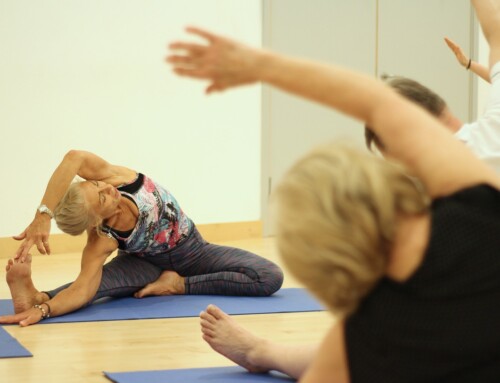For most of our lives, we followed routines and schedules – from work to household chores to family obligations. Retirement, while seemingly a relief from this structure, interrupts the cadence of life that we are most familiar with. This feeling of “What do I do next?” is even more prevalent for those living with Alzheimer’s disease or another form of dementia. The compelling feeling of needing to “be somewhere” can transform into restlessness, also known as sundowning. Sundowning can happen when an elderly family member becomes increasingly confused as evening approaches. This disorientation can result in agitation and is exhausting for those caring for them – especially if it lasts throughout the entire evening. We have spoken in a previous blog about sundowning, but in this article, we will look a little deeper into what you can do to ease your loved one’s confusion and stress.

Symptoms Associated with Sundowning
Irritability, anxiety, and confusion are all potential signs of sundowning. These symptoms may manifest in various ways if they appear at all. The Alzheimer’s Association reports that one in five of those individuals diagnosed with Alzheimer’s will experience sundowning. Here’s how you can help.
- Ask them about their old routine: Although the circumstances of our lives change, most of us maintain the same basic schedules throughout most of our years. Early risers tend to remain early risers, for instance. If your loved one worked a corporate job for decades, they may feel the need to “wrap things up” at 5 p.m. or catch a bus to get home. These predictable and repeatable behaviors remain in our minds somewhere and can cause restlessness we don’t even understand. A good way to help ease this confusion is to ask your loved one about their old routine and see if it matches their sundowning behavior.
- Expect the behavior: Once you understand what is likely behind the behavior, you can anticipate the episodes and have a redirection plan in place. For instance, if they used to leave for home at 5 p.m., they may feel the need to leave their residence at that time every day. You can help by scheduling a walk outside at that time every day or even taking them for a short drive. This will satiate anxiety about “needing to go home.”
- Keep their home well-lit: The approaching dusk is often a trigger for sundowning behaviors. You may try to install drapes and keep them closed from midafternoon so that they don’t realize the difference in light and darkness as much. Put high-wattage lightbulbs in their fixtures, and add lighting if necessary to keep the room well-lit. Keeping their home more illuminated helps the resident’s circadian rhythm to remain constant and untriggered.
- Try basic aromatherapy techniques: Aromatherapy may also help to ease many of the symptoms of sundowning. Lavender oil, in particular, has been shown to relieve confusion, anxiety, and agitation. Try an essential oil diffuser – or if the individual is willing, give them massages with lavender oil every evening. Play their favorite music for additional benefits.
Every person is unique, and not every method will work for everyone. Still, you may find that one or more of these tips will help alleviate the distressing symptoms of sundowning for your loved one.
Caregiving and Memory Care
While taking care of a loved one with dementia is preferable for most people, it can be overwhelming once symptoms such as sundowning begin to appear. If you are looking for a professional and compassionate memory care residence in The Villages, we invite you to come speak with our staff and tour the A Banyan Residence facility.







